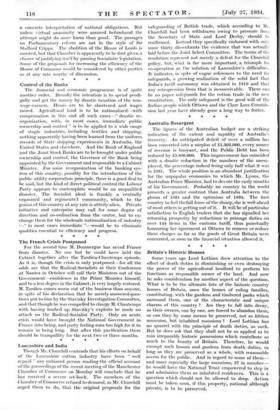Lancashire and India Though Mr. Churchill contends that his efforts
on behalf of the Lancashire cotton industry have been " well repaid " any unbiased person reading the official account of the proceedings of the recent meeting of the Manchester Chamber of Commerce on Monday will conclude that he has received a severe setback. The members of the Chamber of Commerce refused to demand, as Mr. Churchill urged them to do, that the original proposals for the safeguarding of British trade, which according to Mr. Churchill had been withdrawn owing to pressure 'front the Secretary of State and Lord Derby;' should be reaffirmed. Instead they specifically endorsed with only some thirty dissentients the evidence that' was actually laid before the Joint Select Committee. The terms of the resolution represent not merely a defeat for the Churchill policy, but, what is far more important, a triumph for co-operation as the solution of Laneashire's difficulties. It indicates, in spite of vague references to the need for safeguards, a growing realization of the solid fact that India's tariff autonomy was obtained in 1919 and that any retrogression from that is inconceivable. There can be no paper safeguards for the cotton trade in the new constitution. The only safeguard is the good will of the Indian people which Ottawa and the Clare Lees Commis- sion last year have already gone a long way to foster.


































 Previous page
Previous page